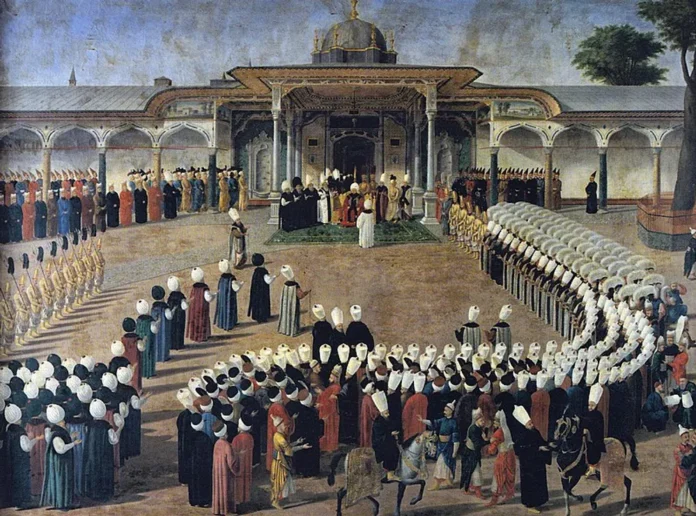Author: Daniel Neep
Affiliation: Crown Center for Middle East Studies at Brandeis University
Organization/Publisher: International Affairs, Oxford University Press
Date/Place: Volume 97, Issue 6, November 2021/UK
Type of Literature: Academic Journal article
Number of Pages: 17
Link: https://academic.oup.com/ia/article-abstract/97/6/1825/6371834?redirectedFrom=fulltext
Keywords: Middle East Politics, Modern History, Ottoman History
Brief:
What the Treaty of Westphalia is to the origins of the modern state, the Sykes-Picot Agreement is to the formation of the modern Middle East. The author argues that such orthodoxies among political scientists overstate the importance of the post-World War I colonial period as axiomatic in the creation of the Middle East along with a natural rise of ethnic nationalisms. Instead, he claims that Late Ottoman social and economic transformations had achieved great integration across the Middle East, displacing the privileged place of the colonial narrative. Most elite inhabitants in the Middle Eastern provinces supported Ottomanism, or the idea of an empire-wide citizenship model. The reforms and modernization under Ottoman rule were relatively successful and set the terms for what colonial authorities inherited. Orientalist narratives about Ottoman decline prevent political scientists from exploring fresh areas of research. In regard to economic decline, the author points to revisionist economic history which places Ottoman economic woes within a context of a global financial crises. During the same period, 10 out of 13 countries in Latin America went bankrupt and devastation in Europe and North America left banks and financial houses in ruins. This global context shows that the Ottomans were subject to aggressive foreign lending that forced the empire into further and further debt. These nuances show that Ottoman bankruptcy was the product of global influence and not a domestic implosion as has been previously argued. The author argues that Ottomans shaped state-building and politics in the Middle East. For example, efforts towards centralization after the Tanzimat period of reform (1839-1876) allowed for new provincial identities to form such as Syria and Iraq with their respective capitals. Ottoman modernization was successful because during the same period while other countries underwent radical revolution, Ottomans were able to steer a stable ship. These successes complicate the fact that new land reforms and promises of equality also had unintended consequences. For example, it was the modern reforms themselves that led to sectarian identities which were fermented during the colonial period. The brief examples are meant to show the vast potentiality in Late Ottoman history for better understanding the modern Middle East today.
By: Üveys Han, CIGA Senior Research Associate




